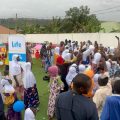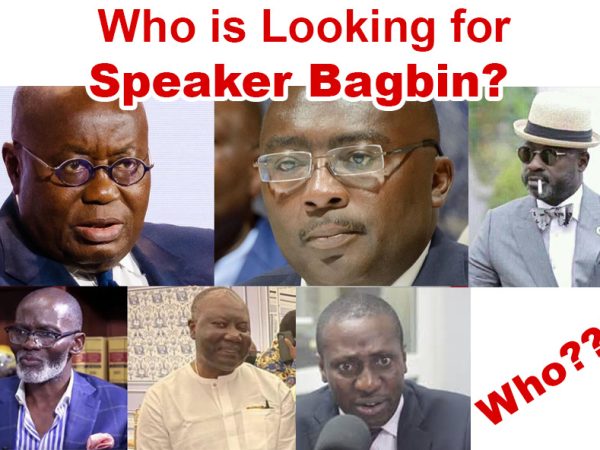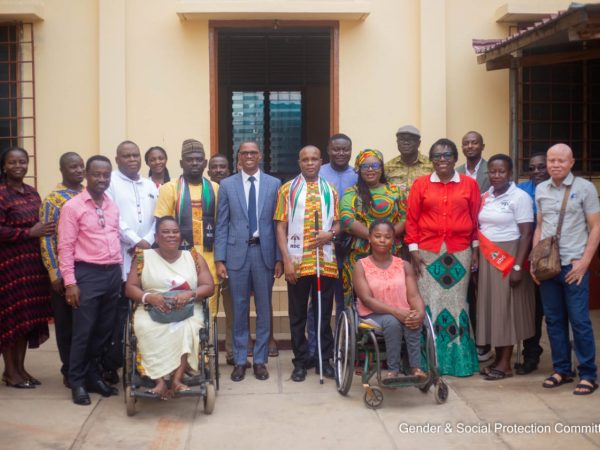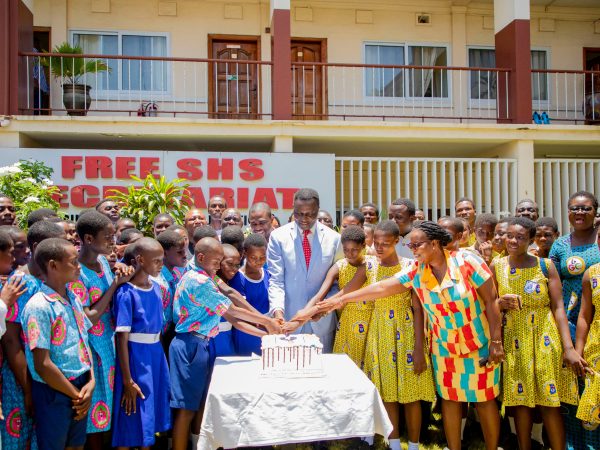Climax of Damba: Let’s not use Festivals to breed a partisan agenda – Tamale Central MP
THE Member of Parliament for Tamale Central, Hon Ibrahim Murtala Mohammed has called on Ghanaians, especially political actors not to use festivals as breeding grounds for political agendas.
According to him, “efforts to use traditional festivals as platforms for the promotion of development still leaves much to be desired, festivals, unfortunately, are still breeding grounds for peddling partisan political agenda and in some cases unwanted disputes.”
“Mr Speaker, The Damba festival creates a nonpartisan avenue for policy makers, government officials, civil society organisations, politicians and other agencies to interact with the chiefs and people and explain to them the policies, programs and plans on critical social issues such as health, environment, education and security.
“We, therefore, need to consider seriously using traditional festivals as the most participatory forms of engaging with duty bearers devoid of political influences for the growth of our societies and the nation as a whole,” he added.
Hon Murtala made the call when he delivered a statement on the Damba Festival on the floor of Parliament on Friday, November 5, 2021.
The Damba festival, he is explained is categorized into three main festivals, namely: Somo Damba, Naa Damba and Belkusi Damba.
The Festival is celebrated under the calendar by the people of Dagbon, Mamprugu, Gonja, Nanumba and parts of Upper West in the Northern, Savannah and Upper Regions respectively.
Hon Murtala said the importance of the festival is to commemorate the birthday of the Prophet Mohammed (SAW). But the actual content of the celebration is a glorification of the chieftaincy.
The Damba festival is however considered a thanksgiving festival and a time for families to meet and socialize. It is also for auditing and evaluating the past and planning for the future. This is the period the Dagomba’s who reside outside Dagbon travel home for the festival.
Some of the activities marking the Damba festival include prayers and fasting and procession of people on horseback, exchanging of gifts, shooting of muskets and display of warrior dance.
For the first ten days or nights after the appearance of the new crescent moon of Damba month (on the Dagbon calendar), young men and women gather at the chief’s palace for dance rehearsals. They are called to the palace by the beating of drums every night.
This is an opportunity for young people to practice their dance forms from the elders. During this time, women may also gather to sing praises to the chiefs for their exploits and enticement and bravery at the palace for ten nights.
Other MPs who contributed to the statement commended the Tamale Central MPs and urged that festivals in the country should be used to promote peace and development of the country.
Below is the Full Statement
STATEMENT ON THE SUCCESSFUL CELEBRATION OF THE 2021 DAMBA FESTIVAL IN DAGBON
Delivered by; Hon. Ibrahim Murtala Mohammed
Mr. Speaker, Festivals are an expressive way to celebrate glorious heritage, culture and traditions. They are meant to commemorate special moments and accomplishments in our lives as a people. Festivals undoubtedly play a critical role in adding structure to our social lives and as well connect us to our families and backgrounds.
Mr Speaker, The Damba festival is a Traditional-Religious festival celebrated under the lunar calendar by the people of Dagbon, Mamprugu, Gonja, Nanung and Waala, of the Northern, North-east, Savanna and Upper West regions of Ghana. I must add, that, the festival is also annually observed by certain ethnic groups in the upper East region. While the significance of the festival is to commemorate the birth of the holy prophet, Muhammad (PBUH), and supplicate to the All Mighty Allah, the actual content and events that characterize the celebration of the festival is the glorification of chieftaincy and the display of beautiful Northern and the Dagbon culture in particular. Damba festival is in effect a thanksgiving festival and a time for families to meet, socialize and reflect on ways to reinforce community social relationships and cultural values. It is also a moment for auditing and evaluating the past and planning a future so desired by the people of Dagbon, Mamprugu, Gonja and Nanung. The Damba festival presents an opportunity for Dagombas, Mamprusis, Gomjas and Nanumbas who reside outside these traditional areas to travel home to reunite with their families and friends and to engage in the festivities.
Mr Speaker, The Damba festival in Dagbong is specifically categorized into three main divisions namely: Somo Damba, Naa Damba and the Belkulsi. The first ten nights after the appearance of the new crescent moon of Damba month (on the Dagbon calendar), is marked by initial activities that graze the celebration of the Somo Damba. During this period, young people gather at the chief’s palace amidst the beating of drums and dance rehearsals. During this time, women may also gather to sing praises to the chiefs for their exploits, enticement and bravery at the palace for ten nights.
Mr Speaker, on the 11th day, the second and most important aspect of the Somo Damba takes place. This years’ Somo Damba took place on the 18th October 2021. In the morning, the Muslim clerics and their devotees come to the palace where a bull is slaughtered according to Islamic ritual amidst recitation of the Holy Quran. Those present form a circle around the bull and the king is made to walk or jump over it three times. The bull is slaughtered and the meat is distributed for feasting.

Mr. Speaker the king does not publicly appear in the morning. However, the ceremonies are directed by a state elder in charge of the festival for this day. Late in the afternoon, the chief (Ya-Naa) is led out by his elders after an appreciable crowd has gathered. He walks majestically as the musketeers’ fire their weapons while praise singers sing appellations. The king sits on a pile of animal skin covered with beautiful oriented rugs also known as skins in Dagbon. Everyone must approach the chief for permission to dance while the chief provides money for the drummers and gonje (stringed musical instrument) players. The King is the last to dance and then exits in the same manner he entered, thus, bringing to an end the activities for the evening.
Mr Speaker, on the 17th day, the Naa (chiefs Damba) Damba is celebrated. It is the most important of the festival days characterized by dancing and chiefly processions. Everyone tries to make it grand in the Naa Damba, which includes feasting and acts of homage and excitements.
The 18th day is the farewell Damba, which is known as Belkulsi. The highest ranking sub chief will lead other low sectional chiefs and elders to thank the sectional chiefs leading to the climax where the people, chiefs and others assemble at the palace of the Yaa Naa or chief of the town. They will move from house to house to greet the sectional Chiefs and mobilize the people to deliberate on issues such as peace, development, fundraising and resource mobilization among others. Politicians, NGOs, Companies and wealthy individuals are approached for support.
Mr. Speaker, the Traditional institution in Ghana has always played a pivotal role in the mobilization of an indigenous community resource for development. In the absence of an established traditional leadership system, local government administration becomes a huddle, hence, the need for government to recognize the legitimacy of local traditions and make arrangement to participate in festivals for the promotion of indigenous values and sustainable development.
Right honourable speaker,r this years’ Damba festival witnessed a phenomenal step towards the achievement of a concerted Development Plan to facilitate the growth and development of the Dagbon kingdom and its people. The occasion marked the launch of the Dagbon Development Fund, which fund envisions a peaceful and prosperous Dagbon kingdom, with all its citizens having equal opportunities and access to resources for the sustenance of their livelihoods and as well, contribute towards the overall achievement of optimum development of our beloved country.
Mr Speaker, the Dagbon Development fund comes at a time when the almost eight (8) long century kingdom has arisen from years of conflicts and disunity which has retarded development through loss of valuable lives, destruction of properties and the disruption of economic activities. The fund, therefore, adopts critical objectives to complement the effort towards the achievement of the collective development of Dagbon, some of which include;
Rebrand and repackage the Dagbon chieftaincy institution to become a major vehicle for development.
Mobilize and prudently manage funds for the equitable development of the Dagbon traditional area.
Make Dagbon a competitive economic area.
Increase access to quality education at all levels.
Mr Speaker, these are but a few of the objectives of the Dagbon Development Fund. I, therefore, call on all sons and daughters far and near, sympathizers and well-wishers of the Dagbon kingdom, cooperate Ghana and ultimately the government to join hands in pursuing this sanctified effort towards achieving everlasting progress of the Dagbon kingdom.
Mr Speaker, in conclusion, gained an understanding of the daily workings of local communities and how certain disadvantages heighten their economic marginalization are significant in any government developmental agenda and planning strategy. The Damba festival creates a nonpartisan avenue for policy makers, government officials, civil society organisations, politicians and other agencies to interact with the chiefs and people and explain to them the policies, programs and plans on critical social issues such as health, environment, education and security. However, efforts to use traditional festivals as platforms for the promotion of development still leaves much to be desired, festivals unfortunately are still breeding grounds for peddling partisan political agenda and in some cases unwanted disputes. We therefore need to consider seriously using traditional festivals as the most participatory forms of engaging with duty bearers devoid of political influences for the growth of our societies and the nation as a whole.
Thank you.
Source: expressnewsghana.com
Send your news stories and articles to expressnewsgh@gmail.com or via WhatsApp +233 0543 900 732












